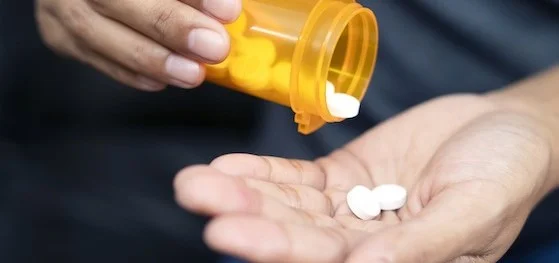
Joint Replacement Recovery Pain Relief – A Complete Guide

Understanding Joint Replacement Recovery Pain Relief
Joint replacement recovery pain relief is a critical part of the healing process after surgery. Patients often experience discomfort, swelling, and limited mobility in the days and weeks following joint replacement. Proper pain control helps patients regain function faster and engage in joint replacement recovery exercises without unnecessary stress or discomfort.
Managing pain effectively is essential, but it must be done carefully to avoid long-term complications like dependency on medications. With the right balance, joint replacement recovery pain relief can be safe, comfortable, and effective.
Why Pain Medication Is Used for Joint Replacement Recovery Pain Relief
After surgery, doctors prescribe medications for several important reasons:
- To reduce pain and swelling after surgery
- To improve comfort during physical rehabilitation
- To support faster healing through joint replacement recovery exercises
- To enhance overall well-being and mobility
Common medications used for joint replacement recovery pain relief include opioids, NSAIDs (nonsteroidal anti-inflammatory drugs), and acetaminophen. While these medications are effective in managing pain after joint replacement, they must be used with care.
Risks of Improper Use of Pain Medications
Although painkillers help in the short term, they can lead to problems if used incorrectly. Here are some key risks:
- Prolonged use can increase the chance of addiction.
- Patients may require higher doses over time to feel the same relief.
- Psychological dependence can develop, making it hard to stop.
- Withdrawal symptoms like anxiety, nausea, and irritability may occur when stopping suddenly.
Being aware of these risks is part of smart post-surgery pain relief tips that every patient should follow.
Warning Signs of Painkiller Addiction
It’s important to recognize early signs of medication misuse. These include:
- Taking medication longer than prescribed
- Increasing the dosage without medical advice
- Feeling anxious or uneasy when not taking medicine
- Visiting multiple doctors to get more prescriptions
- Finding it hard to stop medication, even when the pain has decreased
Safe and Effective Pain Management Strategies
To stay safe and still achieve effective joint replacement recovery pain relief, patients should follow these strategies:
- Follow your doctor’s instructions carefully
- Taper off medications slowly, instead of stopping suddenly
- Use alternatives like NSAIDs or acetaminophen
- Apply ice therapy for localized relief
- Do joint replacement recovery exercises to promote healing
- Try mind-body techniques like meditation or acupuncture
These are some of the best post-surgery pain relief tips to ensure comfort without risking addiction.
Role of Your Surgeon in Safe Recovery
Trusted surgeons like Dr. Vivek Logani, Director – Orthopaedics, play a vital role in guiding patients through joint replacement recovery pain relief. Dr. Logani ensures that every patient receives a personalized plan to safely manage pain and complete their recovery journey.
Risk of Addiction to Pain Medication
The use of opioids for managing pain after joint replacement must be carefully controlled. Risks of addiction include:
- Prolonged Use: Extended use beyond the prescribed period increases dependence.
- Higher Dosage Needs: Over time, the body may require higher doses for the same effect.
- Psychological Dependence: Patients may develop an emotional reliance on pain medication.
- Withdrawal Symptoms: Stopping opioids suddenly can cause discomfort, including anxiety, nausea, and agitation.
Signs of Pain Medication Addiction
Recognizing addiction early is key to preventing serious consequences. Some warning signs include:
- Using medication beyond the prescribed period
- Increasing dosage without medical advice
- Feeling anxious or irritable when not taking medication
- Seeking additional prescriptions from multiple doctors
- Difficulty stopping medication despite reduced pain
Safe Pain Management Strategies
To reduce the risk of addiction, it is important to follow a balanced pain management plan, which may include:
- Following Doctor’s Instructions: Taking medication only as prescribed and for the recommended duration.
- Gradual Reduction: Tapering off opioids instead of stopping abruptly.
- Alternative Pain Relief Methods: Using NSAIDs, acetaminophen, or localized treatments such as ice therapy.
- Physical Therapy: Engaging in joint replacement recovery exercises to promote natural pain relief.
- Mind-Body Techniques: Utilizing meditation, relaxation techniques, or acupuncture for additional relief.
Role of the Surgeon in Preventing Addiction
Experienced surgeons, such as Dr. Vivek Logani, Director – Orthopaedics, MS (Orthopedics), DNB (Orthopedics), MNAMS, MBBS, play a key role in ensuring effective and safe Joint replacement recovery pain relief By developing personalized post-surgical care plans, doctors can help patients manage pain effectively while minimizing the risk of medication dependence.
Moving Forward Safely After Surgery
Pain management after joint replacement recovery pain relief is essential, but it must be approached with caution. Patients should stay informed, follow prescribed guidelines, and communicate openly with their healthcare providers about their pain levels and medication use. With the right approach, post-surgical recovery can be both comfortable and safe, leading to improved mobility and long-term well-being.
Consult Dr. Vivek Logani for Safe Pain Management
For expert guidance on managing pain after joint replacement and post-surgery pain relief tips, consult Dr. Vivek Logani, Director – Orthopaedics. His expertise ensures a comprehensive approach to recovery while prioritizing patient safety and long-term success.